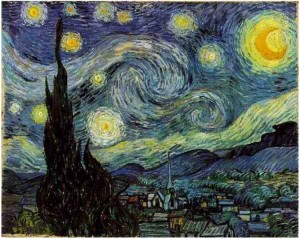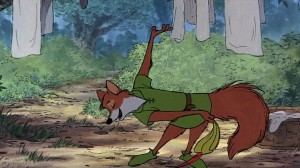
I have heard Bipolar Disorder described in many ways. Perhaps one of the most confounding descriptions I have heard is that it is like a thief, stealing from you and never giving back.
This may well be the case for many people, but it is not the case for me. Yes, bipolar is a disorder that takes a lot from you: from me it has taken, at various times in my life, my friends, my family, the only man I have every truly loved, my career, my figure, my health, my sanity, and finally, my will to live.
But it has given me a lot in return.
I see the world in a way most people simply cannot fathom. I do not say that this is a better way of viewing things, or that it makes me in any way better than those who see things the ‘normal’ way, it is simply an observation: I do see the world from a different perspective. A perspective so different in fact, that at certain times I find myself beyond frustrated, because so many people in my life are simply incapable of understanding what I’m try to say. This has nothing to do with intelligence—although it is true that many people with bipolar and similar disorders are also highly intelligent—it is a matter of perspective.
That is the gift of bipolar. An ability to look at things in a completely different way, and quite often find the beauty in them where others see nothing but mundanity. One needs only to look at the works of Van Gogh to have some understanding of what I’m speaking about; he saw the world in far greater detail than the majority of people ever could. He saw the wonder in that intricacy, the stunning nature of situations and objects that others would have found commonplace.
Van Gogh is now widely considered to have been bipolar. His insanity, for want of a better word, is well documented, but so too is his vision.

There are downsides to my cycling moods, no matter which state I am in. It has to be said that I find the depression the most difficult to deal with, the hardest to drag myself through without causing myself physical harm. It is also arguable that I do more damage to myself while manic, for I tend to act during these times, and my actions have severe consequences. The positive thing about both states however, are the insight you gain.
This is a commonality I have found many people with mental illnesses share, so much so that my fiction writing began to explore just what this meant. A series of novels was born, looking at people with various mental health issues and how they see the world as a result. These novels are heavily metaphorical, using paranormal elements and some of the more enigmatic sub-cultures in society to demonstrate various points. The very fact I was able to write them however, tells me that my ‘illness’ is not entirely bad.I am well aware that my best work has happened while I have been completely manic. I have sudden bursts of creativity and productivity, during which time I complete entire novels, huge sections of my thesis, or write full papers, in a very short space of time. These works are not always brilliant, although I am generally always convinced that they are brilliant while still in the grips of mania. What they are, however, are the building blocks of my world view. And it is so very, very different, to the view that most people have.

Such thoughts I would never have had, if it had not been for my bipolar. It is my hope that my writing will some day allow others to gain some insight into this very elusive perspective I am trying to explain. It is what I say to myself when I step on the scales each week, or catch a glimpse of myself in the mirror: my body may be ruined, but my mind is not.
Contrary to popular opinion, being ‘crazy’ does not mean you are incapable of higher though. Quite the contrary.
I know a lot of people with similar conditions to my own, and indeed other people with bipolar, who have stated categorically that, despite the fact they hate what bipolar does to their lives, were they able to take it away, rid themselves of it completely, they would choose not to.
If a magical pill existed, that could cure bipolar, would you take it?
I wouldn’t.
My psychiatrist recently offered me the option of taking lithium based MEDs. After discussing it with him at length I eventually declined. My reason for this was simple. The lithium would further stabalise my moods and decrease the depressive episodes from which I still suffer, despite the MEDs I’m on. It would make be feel, for want of a better word ‘flat’.
I have no wish to be flat.
This may sound very strange considering how horrendous this illness can be, yet I am given to understand it is not an unusual reaction for patients to have. Last week I remarked that many people, myself included, begin to heavily link their condition to their identity and, as a result, do not know who they are, or how to cope, if and when they feel ‘better’. Lithium, at least to me, seemed like a far worse curse than becoming, for want of a better word, ‘normal’.
Lithium would actually flatten out the ups and downs a person who didn’t suffer from bipolar would have.
I have an aversion to the colour beige. It is, to me, far more so than grey, the blandest colour imaginable. I currently live in a world of vibrant colour. Sometimes those colours are angry, blacks and reds, deep stains of purple and flashes of violent orange. Other times they are more bubblegum colours, pinks and lilacs, the colour the ocean always is in postcards of places you’ve never been to, but would love to see.
Lithium would make the whole world beige.
No reds, no purples, no oranges or black. No bubblegum pink and ocean blue. Just beige. Flat, unremarkable, uneventful, emotionless beige.
I may despise the negative aspects of my condition, but I also appreciate the positive sides. I know the gifts I am given, and I am not ungrateful for them. I would never wish to be without them, even if that means continuing to endure the bad, so that I might also have the good. To do otherwise, I feel, would be to become a different person entirely.

Bipolar is a thief?
Yes, there is no denying this. It is an illness that robs you of a great many things, things that can never be recovered, things that are unbearably painful to lose. But, contrary to the expression, bipolar does give back, in ways that are difficult to understand if you have never experienced them for yourself.
If bipolar is a thief, then it’s Robin Hood. And that’s perfectly fine with me.



No I wouldn’t either – The meds made me numb and now I feel alive and feel things whether or not they are good or bad but I feel them – I was like a zombie going through the motions of life – now I have learned to handle things naturally without any meds – and I know my choice is not for everyone but it is what was, and is, best for me
I completely agree. I am still on MEDs, and they are working for me, they keep the worst at bay but still allow me to feel SOMETHING. What I was worried about with lithium was was the zombie state you describe – putting myself in a position where I felt nothing at all rather than deal with the bad along with the good. It’s easy when you’re in the worst stages of depression to lose sight of the bigger picture, and go on the MEDs, thinking anything is better than continuing to feel the way you do in that moment. You can’t imagine surviving it. But you do, and you come out the other end still ‘you’. I think that’s far more important.
That said – it’s easy for me to say that right now. If you’d asked me a couple of years ago I’d have been begging for lithium.
I am not partial to the colour beige either. Loved your colour analogy!
I find it disrespectful to the colour spectrum to even call it a colour